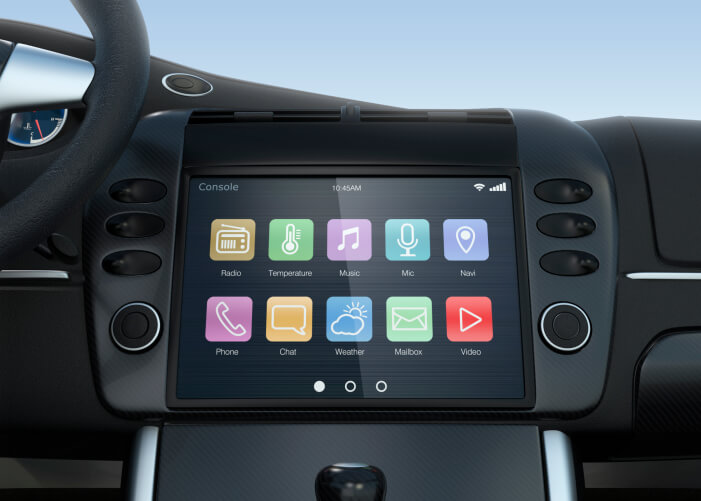
The Weaknesses of Car Computers
Computers have been a crucial part of cars since the introduction of electronic fuel injection in the 1980s. The technology surge of the three decades since has taken computers from simple electronic controls to complicated, networked, fully functioning computers with up to one hundred million lines of code.
Modern Computers are Integrated More than Ever
Your car’s computer is actually a network of sensors and separate computer modules. They allow the computer network to be seamlessly integrated across the entire car. Depending on your car, computers can control everything from braking to acceleration to ignition control to climate control to your in-dash system.
And that’s only the beginning. Google has been testing self-driving cars that capture Street View images for years, and Tesla has included auto-driving software in their recent software updates. These cars have additional external sensors that sense changes and react to them.
Your Connectivity Could Make Your Vehicle Vulnerable
Connectivity is becoming a more and more common feature for vehicles. Bluetooth® integration allows drivers to use their cell phones hands-free through the vehicle itself. Services like Uconnect and On-Star have external connections, and some vehicles even have the capability to create Wi-Fi hotspots.
These same features can also be weaknesses. Hackers and security experts have found ways to use that wireless integration to access the vehicle’s computer. In 2015, hackers exposed an exploitable flaw in the Uconnect system used by Fiat Chrysler vehicles. With the right equipment, they were actually able to control a Jeep while someone else was driving it. While Fiat Chrysler acted quickly to close the hole, the fact that it existed in the first place was a sign of things to come.
All That Software Means a Lot of Possibilities for Bugs
A car with a complicated computer system can easily have up to one hundred million lines of code. Like the software released for your personal computer, all of the lines can turn up a few bugs or mistakes. The core systems are usually tested, but these bugs can still be pretty major.
When these happen, carmakers will issue recalls to update the software and fix the issue. Sometimes these recalls can involve hundreds of thousands of vehicles. A 2015 Honda recall involved 143,000 vehicles to fix a transmission software glitch, while a Ford recall the same year fixed software errors in 433,000 vehicles.
Companies Can Intentionally Cheat the System
One of the biggest weaknesses of software is the manufacturers themselves. Company policy can lead to dramatic issues with the software. For example, a system of testing that’s not completely rigorous can open the door to bugs that need to be fixed by a recall.
Other issues can be more nefarious. As an example, in 2015 it was discovered that Volkswagen had used their software to cheat on emissions tests for years. The scandal led to the resignation of the CEO and a recall of 11 million vehicles.
Like the software in your computer, the software in your car can be hacked, have bugs, or be pre-programmed with hidden issues. That being said, the advancements of car computers are making cars more efficient, safer, and more comfortable to drive. As long as carmakers are diligent in countering these weaknesses, the additional technological benefits are worth the risk.